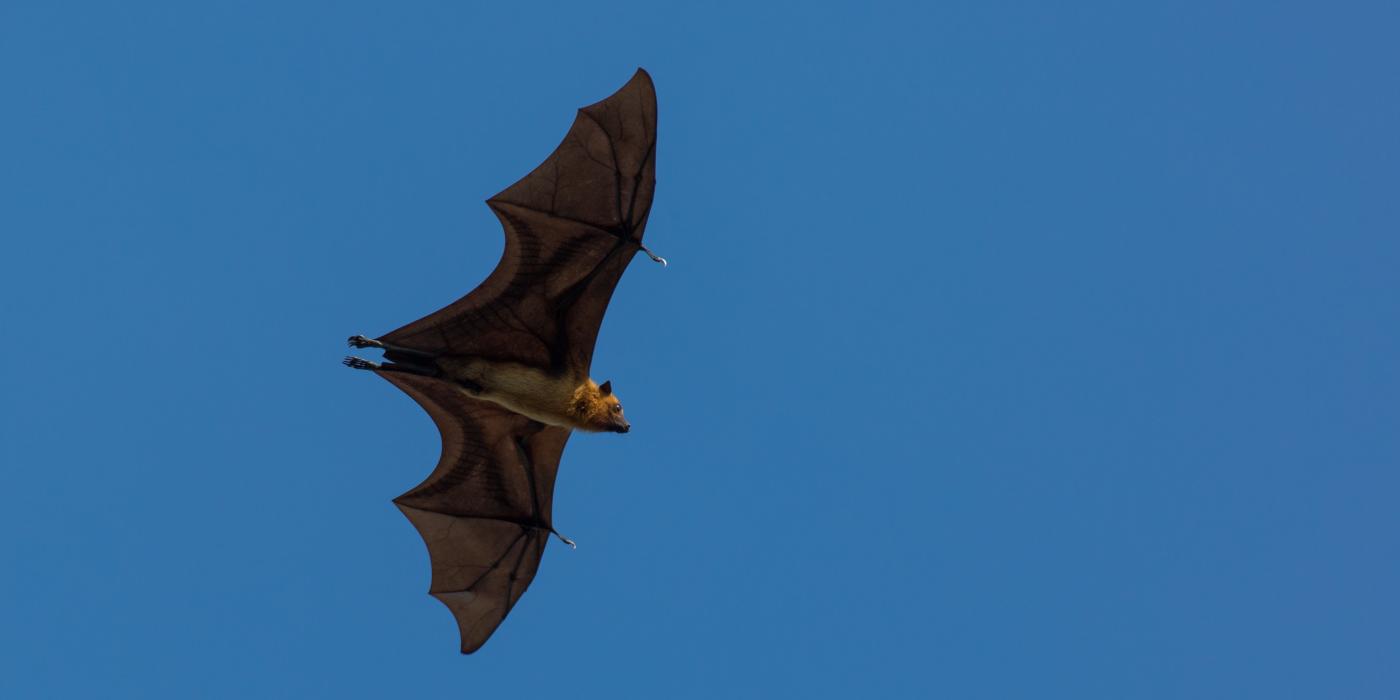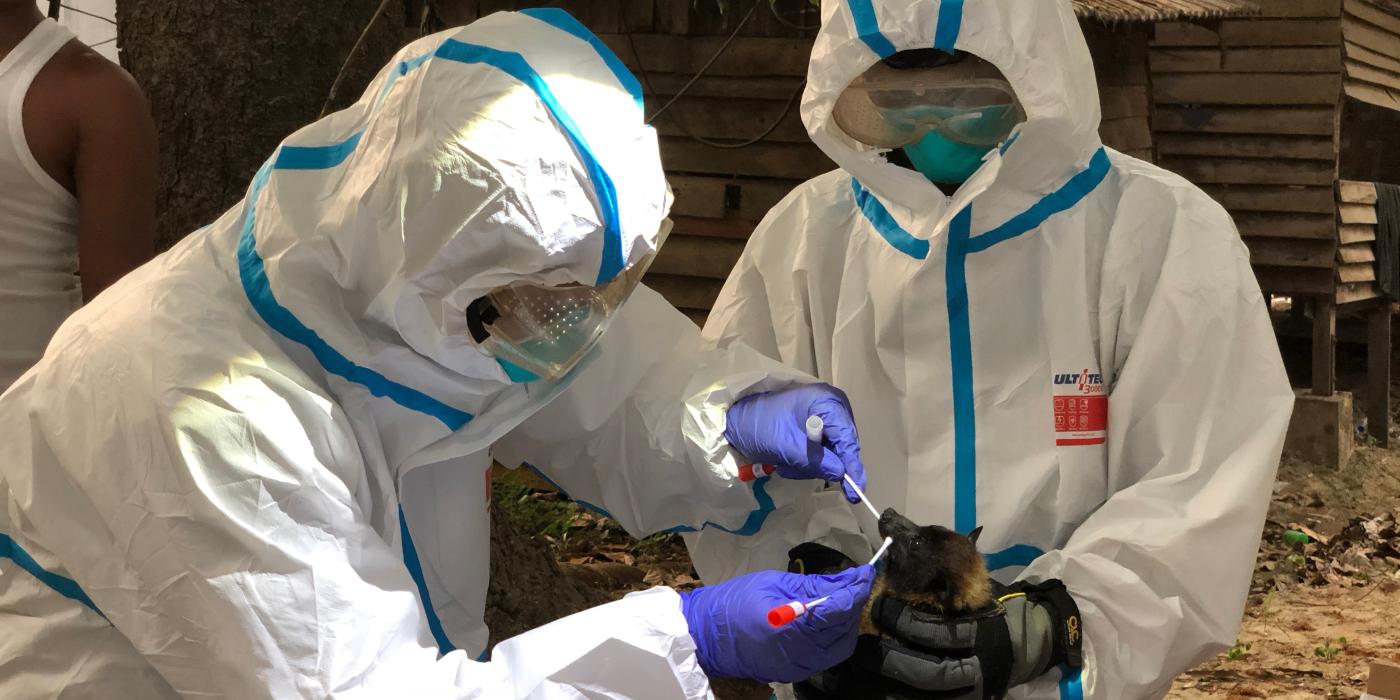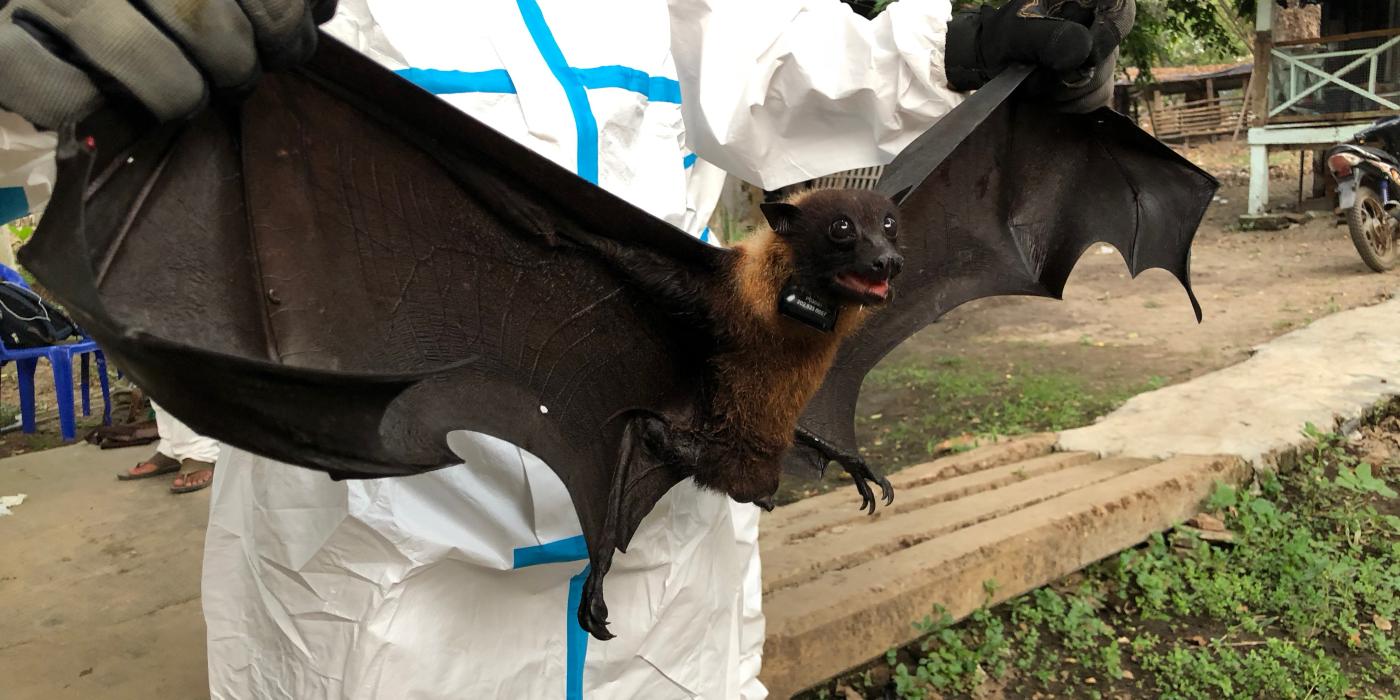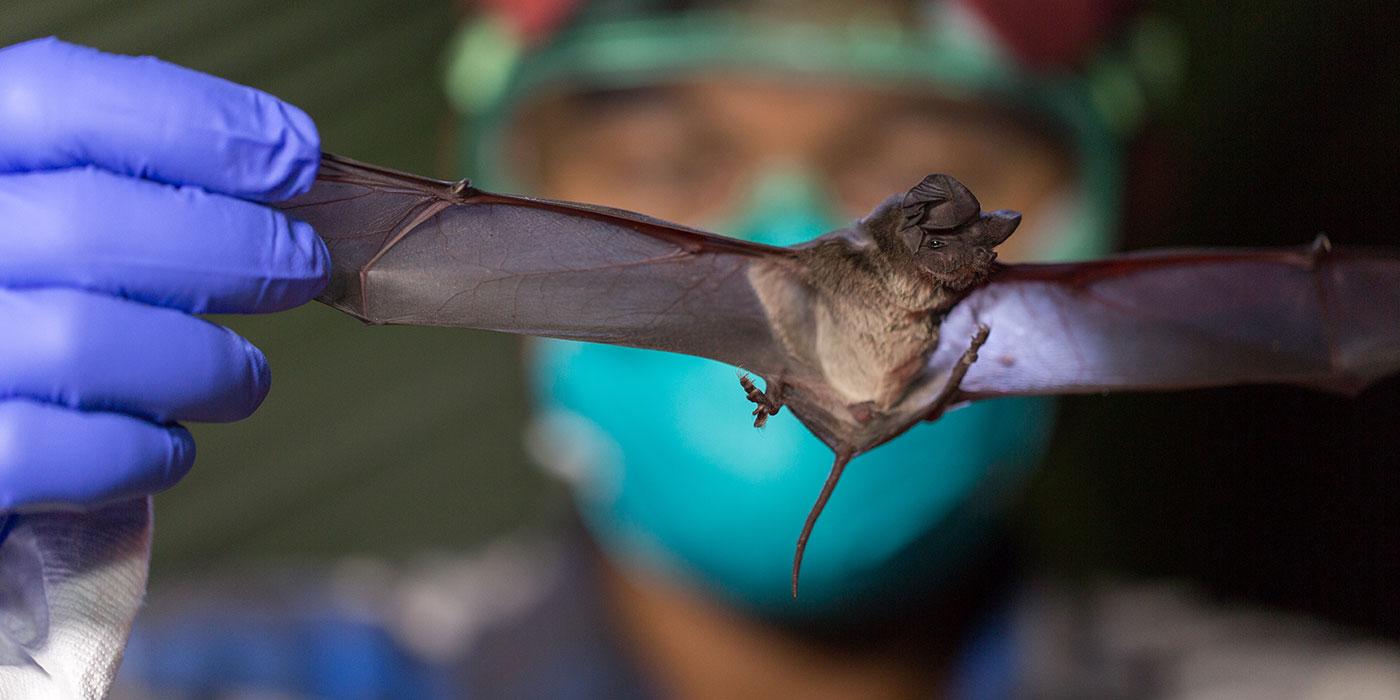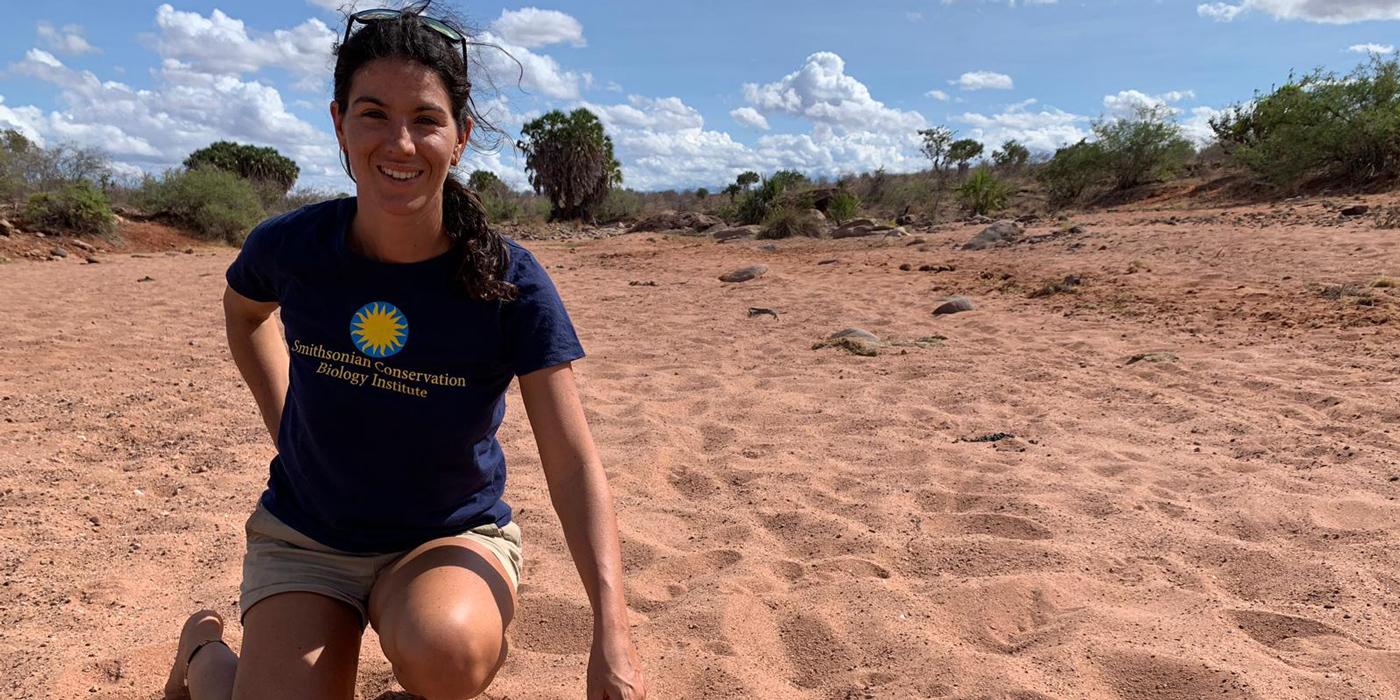Field Notes: Myanmar's Flying Foxes
This update was written by Dr. Jennifer Kishbaugh, a Judy and John W. McCarter, Jr. Global Health Veterinary Intern with the Smithsonian Conservation Biology Institute's Global Health Program.
Bats are vitally important to ecosystem health as pollinators and for insect control. But, they also serve as carriers of human and animal diseases. Megabats, such as the flying foxes of Southeast Asia, are often implicated in transferring fatal diseases to humans.
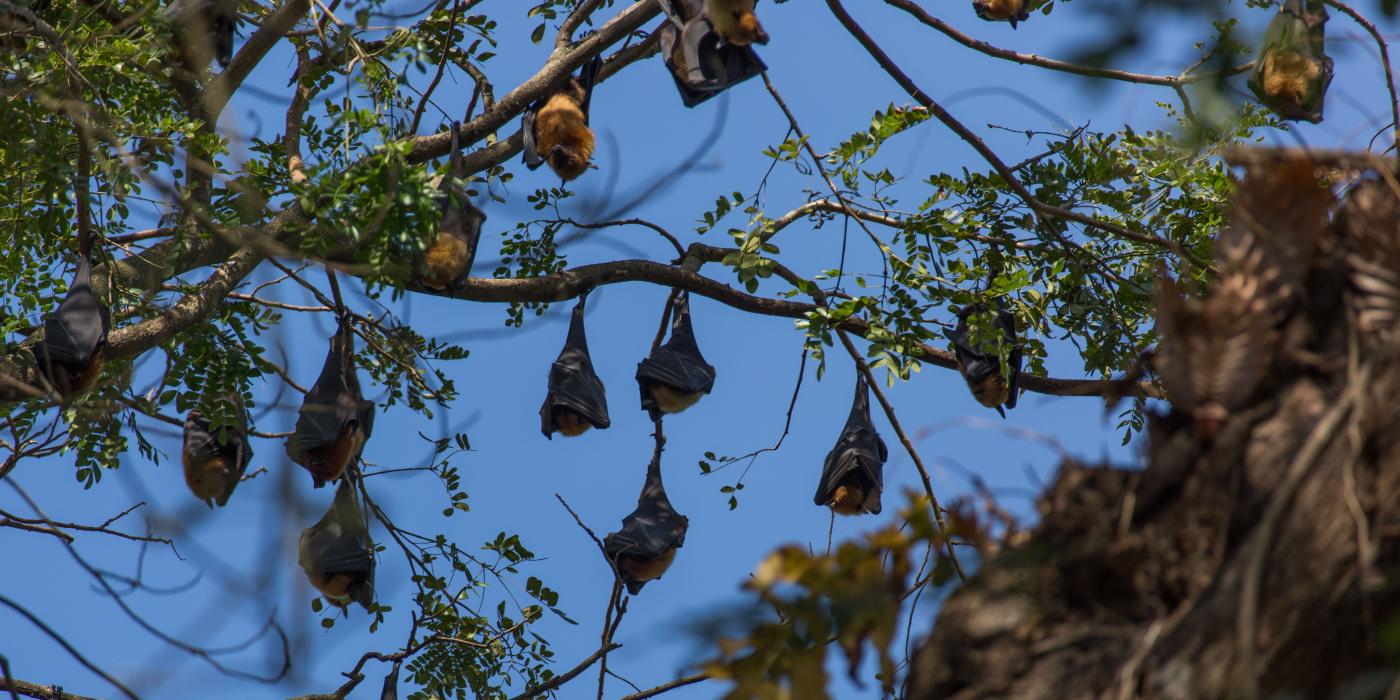
In April 2018, Dr. Marc Valitutto and I traveled to Okkan, Myanmar, to find out how the movement of bats can relate to the spread and subsequent outbreak of fatal viral diseases carried in local flying fox populations.

To track the bats, we are using some innovative GPS tracking collars to better understand their flight patterns. In addition to collaring, we took samples from each bat to test for and identify any viruses they may carry. Local veterinarians use the information gathered from these samples to monitor the health of wild populations.
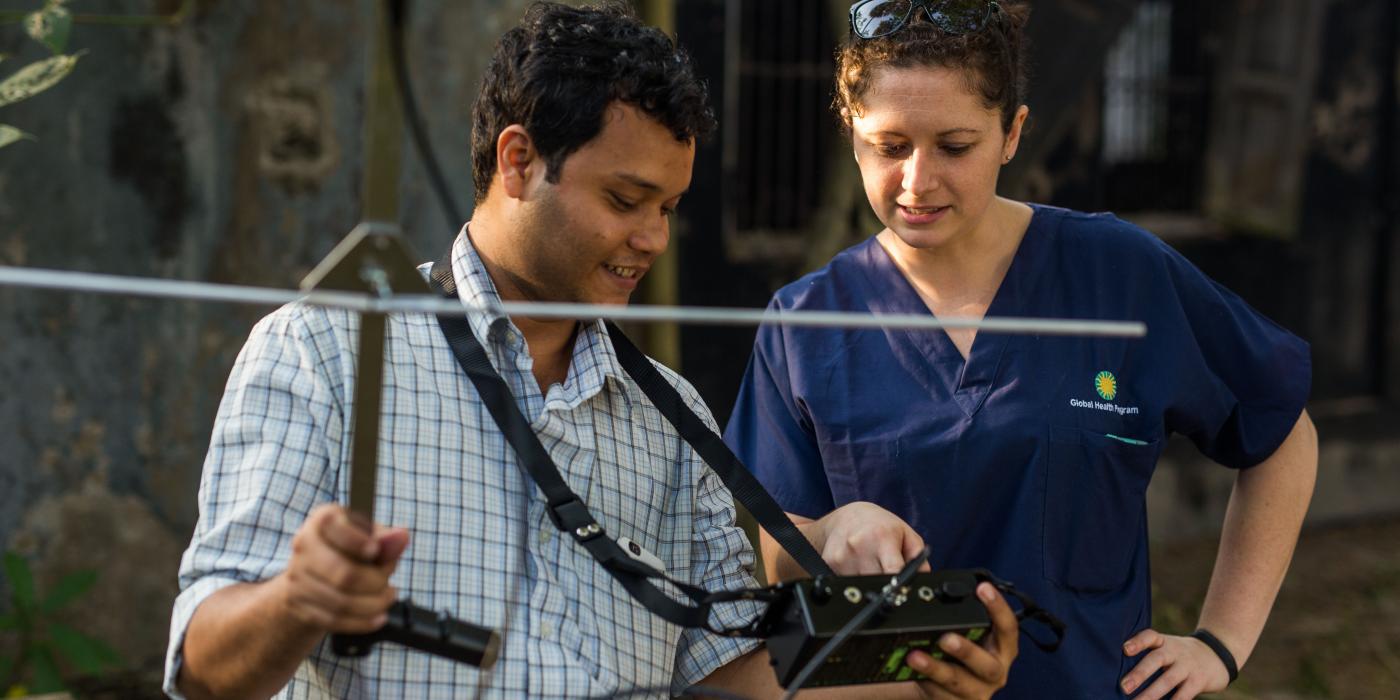
Evaluating the movement maps will give us insight into how these animals are interacting with the changing environment. Scientists can then make recommendations to government officials and enact policies to protect human settlements from diseases carried by the bats while also providing safe haven areas for bats to roost. What we learn about their movements can also be shared with the local communities to highlight the important role bats play in ecosystem health, pollination of fruits and the spread of seeds vital for forest and agricultural growth.
This story appears in the July 2018 issue of National Zoo News.

